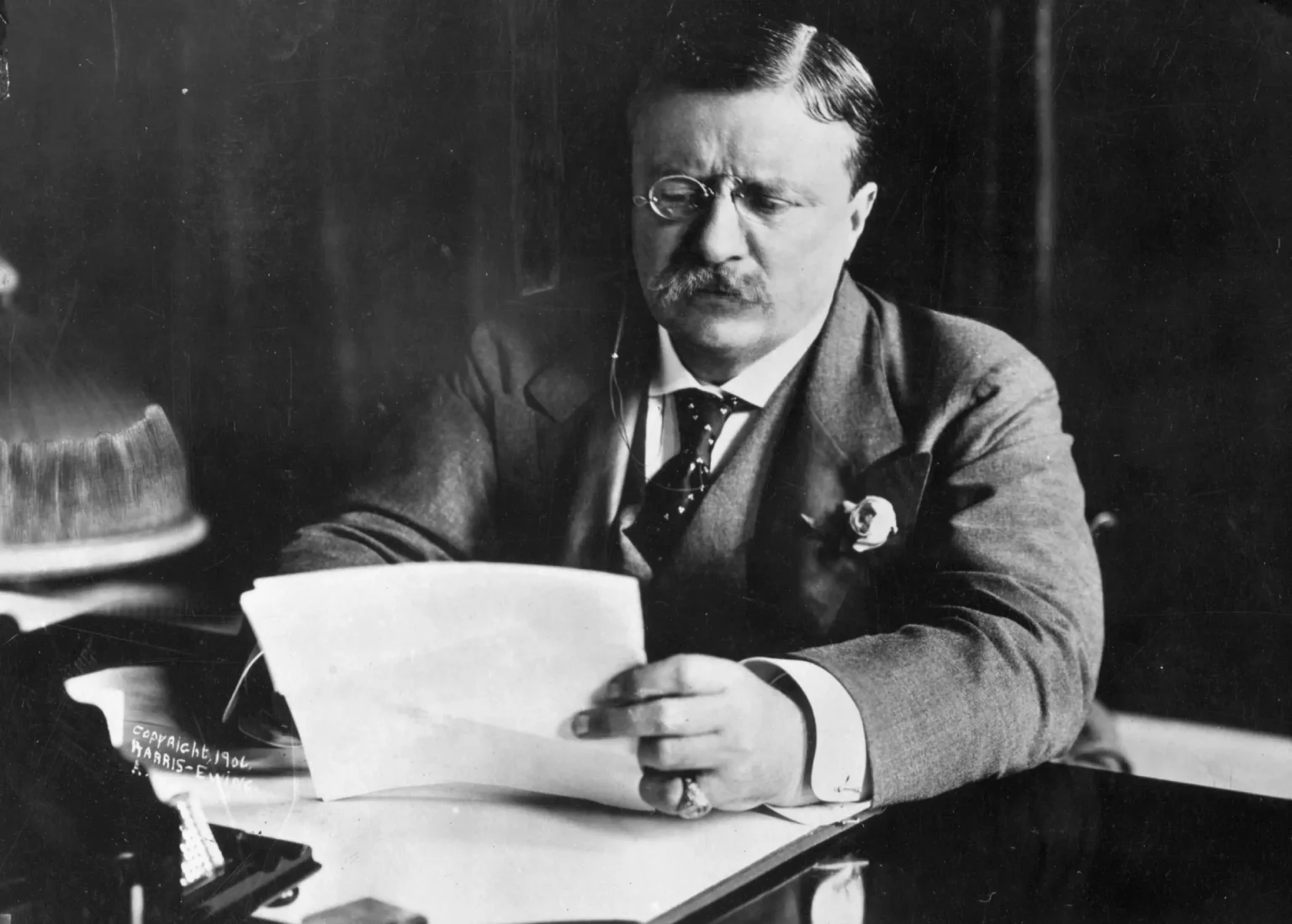Theodore Roosevelt, the 26th president of the United States, was born on October 27, 1858 in New York City. He was known for his contributions to political progressivism, his championing of American exceptionalism, and his Nobel Peace Prize. Roosevelt became president at the age of 42, making him the youngest man to hold that position. He had a privileged upbringing in New York City but faced challenges with his health which he overcame to become a strong advocate of the strenuous life.
After the death of his mother and first wife on the same day in 1884, Roosevelt spent time on his ranch in the Badlands of Dakota Territory where he threw himself into activities like cattle driving and hunting. He also gained fame for his military service during the Spanish-American War as he led the Rough Riders in the Battle of San Juan Hill. Roosevelt later became the youngest president in U.S. history at 42, following the assassination of President William McKinley in 1901. As president, Roosevelt believed in government intervention to address economic disparities between capital and labor.
Despite his accomplishments and prominence in American history, Roosevelt’s legacy has faced criticism in recent years. His statue was removed from the American Museum of Natural History in Manhattan due to concerns about his views on race and colonialism. However, Roosevelt’s image remains chiseled in the American landscape as one of the four presidents featured on Mount Rushmore. His name and image continue to be referenced in popular media, such as the TV show “Blue Bloods,” where his portrait hangs in the office of the fictional New York City police commissioner.
Roosevelt survived an assassination attempt in 1912 during a campaign stop while seeking a third term as president. He was shot in the chest and continued to deliver an 84-minute speech with the bullet still lodged in his chest. Roosevelt’s resilience in the face of adversity exemplified his image as a strong, resilient leader. He passed away in January 1919 at the age of 60, leaving behind a legacy of progressive policies and a commitment to American exceptionalism. Despite the controversies surrounding his views on race and colonialism, Roosevelt’s contributions to American history remain significant.


